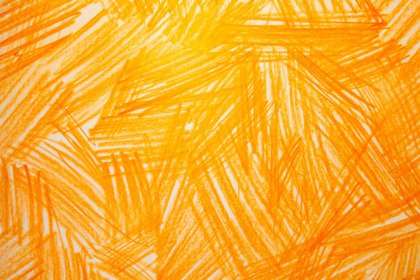
Lake Garda (ITA 0225)
Students
The young man is a happy and capable child who was in PYP3 in the IB system. His education has become more disrupted due to his intensive karting commitments, resulting in gaps in his learning and a growing reluctance to attend school. While he was comfortable in school during his early years in Switzerland, he started to struggle and is now refusing to attend his current international school in Italy. His anxiety around formal education stems from the knowledge that he has fallen behind, making him hesitant to participate in classroom discussions and reluctant to ask for help in front of his peers.
He enjoys structured and logical teaching methods and responds best to clear explanations and step-by-step instruction. He does not engage well with open-ended assignments or interpretive learning approaches, preferring straightforward, practical applications. Mathematics is an area of challenge; he claims not to enjoy it, but this is likely due to gaps in his foundational understanding rather than a genuine dislike. His handwriting and spelling require improvement, though his spoken English is fluent and advanced for his age. The family speak a mixture of English and their native language at home. He also has a beginner’s level of Italian, and while not a primary focus, his parents would like him to gradually develop greater confidence in the language. The young man has been working well with two of our Tutors online for the last half term and he has enjoyed the personalised approach that moves at his pace and allows him to ask questions as many times as needed.
His karting career is his top priority, and his schedule revolves around training and competitions. He competes in local and global karting seasons, with most races taking place in Italy. His parents are committed to supporting his education while ensuring it does not interfere with his sporting commitments. The student requires a Tutor who can make learning engaging, rebuild his confidence, and provide the consistency he has been lacking in a traditional school setting.
His seven-year-old sister is also a competitive athlete, training several hours per day in gymnastics at a high-level facility in Italy. She is bright, energetic, and enjoys school but will benefit from additional academic support due to her demanding schedule. She will join her brother and the Tutor for one day of homeschooling per week. The Tutor will work closely with her current school to keep her on track academically while easing the strain of her training commitments.
Role of the Tutor
The Tutor will cover the core primary subjects, ensuring that the young man builds a strong foundation in numeracy and problem-solving skills. Given his preference for logical, structured learning, the Tutor must break down concepts into manageable steps, reinforcing understanding through repetition, real-world application, and practical exercises. Since he has struggled with classroom participation, the Tutor must create an environment where he feels comfortable asking questions and taking time to fully grasp new concepts without fear of judgment. His handwriting, spelling, and general writing skills require targeted improvement, and the Tutor should integrate these into daily lessons in a way that builds his confidence rather than making him feel self-conscious about his weaknesses.
The Tutor must also be patient and encouraging, working to rebuild the student's confidence in his academic abilities. Since he has historically avoided seeking help in school, the Tutor should ensure that learning is structured in a way that allows him to progress without pressure, celebrating small wins and fostering a sense of achievement. A calm, supportive, and engaging teaching style is essential to help him overcome his reluctance toward formal education.
A key component of this role is integrating the young man's education with his future as a professional racer. His parents are keen for the Tutor to have an understanding of, or interest in, sports science, fitness, and nutrition, as the student will need to develop physical conditioning alongside his technical skills. The Tutor should be able to incorporate relevant topics such as anatomy, biomechanics, reaction times, endurance, and energy management into his education to support his athletic development. Science instruction should align with these real-world applications, reinforcing concepts that directly relate to his career trajectory in motorsport.
His parents would also like him to improve his Italian, as his exposure to the language has been limited. While formal Italian instruction is not the primary focus, the Tutor should encourage gradual language development in a natural, integrated manner, helping him build confidence and fluency over time.
In addition to teaching the young man, the Tutor will provide one day per week of instruction for his younger sister to support her academically while balancing her demanding gymnastics schedule. The Tutor will need to coordinate with her school to ensure that she stays on track with her studies. The Tutor will be primarily based at the family home, though occasional travel may be required. The young man's schedule is subject to frequent changes due to training and competitions, and the Tutor must be highly adaptable to accommodate these fluctuations while maintaining consistency in his education.Hours, Holidays, Accommodation & Travel
The Tutor will work full-time, providing homeschooling for the young man from 9 am to 1 pm, Monday through Friday, with preparation in addition. The Tutor will also teach his sister one day per week. The schedule may require adjustments to accommodate race weeks, with lighter academic workloads during competitions.
The family are close and enjoy their privacy. The Tutor must understand that this is a professional teaching role and when not actively teaching the children, they will be expected to be independent, self-sufficient and not rely on the family to occupy them/cater to them in anyway.
The Tutor will be entitled to two consecutive days off per week, normally at the weekend, but it is essential that they understand the need to be flexible regarding the family’s travel plans and other commitments.
The Tutor will have a minimum of 9 weeks off per annum, to be taken at times agreed upon with the family based on the student's racing calendar. The Tutor will be flexible with respect to any changes in schedule, be they travel-related or otherwise and will adapt accordingly. The Client will strive to give up to two weeks’ notice of any planned alterations.
The Tutor will likely live on-site in a private two-bedroom guest house on the family’s property, with a separate entrance, kitchen, and living space. This will also serve as the designated schoolroom, allowing the children to transition easily into their learning environment. There is also a possibility that the family choose to provide a separate apartment near the family home for the Tutor, and this will be decided nearer the time.
While occasional travel may be required, it will not be a regular expectation, as his parents primarily manage his travel arrangements. A car will be provided for the Tutor’s use.
Miscellaneous
The Tutor must be fit, healthy and a non-smoker – active and energetic with a passion for teaching; the kind of person who always makes the most of their environment to enhance learning opportunities.
Contractual details
- Start: September 2025
- Duration: One year initially, renewable by mutual agreement
- Hours: Approximately 30 hours per week
- Salary: € 216.000 EUR per annum
- Accommodation: Provided
- Car: Provided
- Vacation: Minimum 9 weeks per annum





